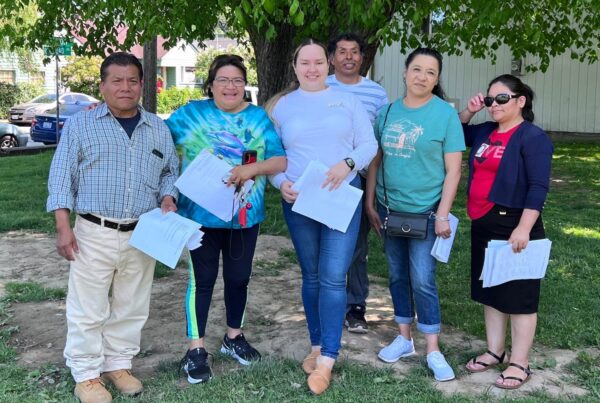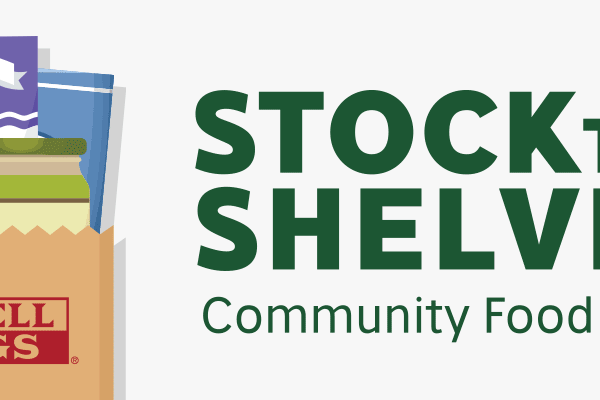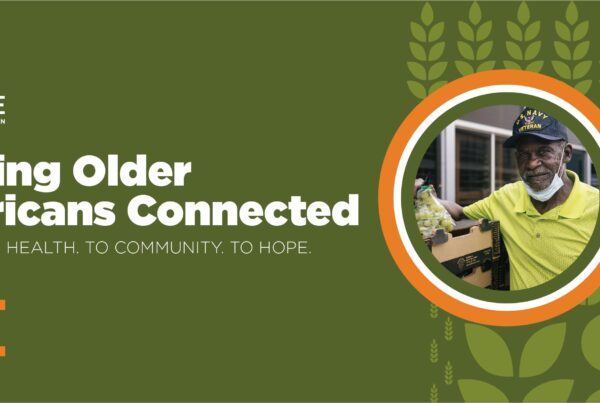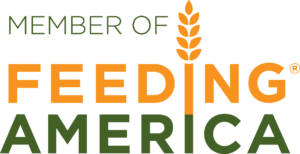Some years ago, the Rev. Jim Eichner was volunteering at a church’s farm project that was so successful, the surplus was donated to food banks.
“That’s where I started to get the idea,” he says. “Instead of giving food banks what’s left over, give them first pick.”
Thus was born Food Bank Farm, a ministry of Redmond’s The Episcopal Church of the Holy Cross, where Father Jim is rector. Food Lifeline is a major recipient and a major supporter of the farm program, which is dedicated to raising produce to help food banks fight hunger.
“Our partnership with the Food Bank Farm is invaluable to us as we work to end hunger in Western Washington,” says Amythst Shipman, Food Lifeline’s director of food resources. “Thousands of hungry people are fed each year from the produce donated from the farm.”
Food Bank Farm donated 3,750 pounds of fresh food in 2011, its first year. A dozen Holy Cross volunteers helped harvest. This past year, 700 volunteers from throughout the community harvested 111,440 pounds of produce for donation.
Father Jim’s goal is to raise 1 million pounds of donated produce by 2021. If Food Bank Farm meets that ambitious goal, much of the credit will go to Father Jim. Not that he’d say so.
He praises the church, corporate and community volunteers who plant, transplant, weed and harvest. Father Jim cites Eric and Sharon Fritch, owners of Chinook Farms in Snohomish, who give “more than a sweet deal” in renting their land to Food Bank Farm and offer the use of their equipment. He mentions the donors who paid for his used tractors and the volunteer mechanic who keeps them running.
United Way is a major supporter, Father Jim adds, and he marvels at Food Lifeline.
“Food Lifeline is huge in this,” he says. For example, Food Lifeline provides bins and trucks to get food from the fields to the distribution warehouse. “Their commitment to this is huge. They’re very supportive in lot of different ways.”
The main harvest from the fields is squash. Why squash?
“Squash never bruises, and if the varieties are familiar enough, people know what to do with it. It will keep for months. There are not a lot of pests. You can weed the rows with a tractor. It’s very practical on all levels.”
Bob Tschumper of Redmond, who volunteers hours of tilling, irrigating and hauling for the fields, on a recent day leads a tour of rows of gorgeous, enormous green mounds of plants. As he passes, bumblebees explore yellow blossoms peeking out above squash that have flourished in this hot summer of 2015.

The fields also hold crops such as green beans, beets (replacement for a failed crop of carrots) and a few rows of potatoes for New HopeMissionaryBaptistChurch, whose Clean Greens project was the genesis of Father Jim’s aha! idea to grow for food banks.
But ideas, like crops, require effort if they’re going to be successful. And for that, other people give Father Jim the credit he is too modest to give himself.
“Jim is very detail-oriented and his thorough planning and effective work makes it easy on us to simply show up and pick up fantastic produce,” says Shipman. “Jim really knows what he’s doing.”
Father Jim grew up on a small Wisconsin dairy farm, and has always been an avid gardener. In 2009, he took a sabbatical at Jubilee Biodynamic Farm in Carnation.

He got back on a tractor and realized that “not just gardening but agriculture was something very important to me. And I was good at it.”
Then came the food-bank ministry. Holy Cross provides $7,000 per year that literally is seed money, also paying for rent, fuel and other expenses not covered by donations.
Food Bank Farm is just an example of what can be done to fight hunger, Father Jim says. “What’s happening out here is nice, but it’s small potatoes.”
Anyone from a large commercial farmer to a kid in a backyard garden can plant food for hungry people, he says.
“And we all get hungry.”
If you’d like to help Food Bank Farm so it can help Food Lifeline, give Father Jim Eichner a call at 425-223-7249. And if you have your own creative idea to help feed the hungry, cultivate it!







